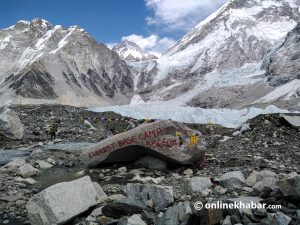
The global conversation on climate change is reaching a crucial point as countries prepare for 29th Conference of the Parties (COP29), a major event for nations to discuss and update their climate commitments.
Taking place from November 11 to 22, 2024, in Baku, Azerbaijan, COP29 is expected to focus heavily on climate finance—the funds needed to help developing countries reduce their emissions and adapt to the effects of climate change. Climate finance remains one of the toughest issues in climate talks, as developing nations call for fairer access to these resources.
What’s there for Nepal?
For Nepal, COP29 is a valuable opportunity to push for fair climate funding, especially as the country faces unique challenges due to its geography and economy. With Nepal already experiencing more floods, landslides, and unpredictable weather, the country could argue for increased support to adapt to these changes and build resilience in farming and green energy sectors, as well as seek financial support for unavoidable losses and damages.
Nepal’s mountainous regions are highly vulnerable to climate change. Glaciers are melting faster, weather is becoming more unpredictable, and landslides are becoming more frequent. The melting glaciers create large glacial lakes that risk bursting and flooding nearby areas, threatening lives, and property.
Yet, getting funding for these high-altitude regions can be challenging due to difficult access, rugged terrain, and sparse populations. At COP29, Nepal could emphasise the need for more support specifically for mountain areas, including better systems to warn people of potential disasters, measures to prevent landslides, and stronger infrastructure to withstand natural hazards.
Additionally, Nepal could highlight the importance of preserving the natural mountain ecosystems, which play a crucial role in protecting local communities and wildlife. As a country that is heavily affected by climate disasters like floods and landslides, Nepal often struggles to cover the cost of recovery.
This makes the idea of “loss and damage” funding—money to help countries recover from climate-related losses—particularly important. Nepal could use COP29 as a platform to advocate for making this funding more accessible to highly impacted, lower-income countries. Simplifying the application processes for such funds could allow countries like Nepal to get the support they need more quickly after a disaster.
Using nature to address climate challenges can be an effective and sustainable solution, especially for Nepal’s fragile mountain areas. Community-led efforts like reforestation, managing watersheds, and restoring wetlands help reduce the impact of climate change.
However, these nature-based solutions often receive limited funding, as mountain ecosystems are not always a global priority.
Is this an opportunity to secure funds for climate-resilient crop research?
At COP29, Nepal could call for climate funding specifically for these natural solutions, which would allow more projects focused on reforestation, community forest management, and sustainable farming practices. Cross-border cooperation with neighbouring countries on ecosystem conservation could also make a larger impact, as Nepal’s mountain landscapes are shared with other nations.
Agriculture is crucial to Nepal’s economy and the main source of livelihood for many people. However, mountain farming faces new threats from climate change, such as changing rainfall patterns, shorter growing seasons, and increased pests.
This puts food security in danger, especially in remote, high-altitude communities that rely on subsistence farming. COP29 could offer Nepal an opportunity to secure funds for climate-resilient crop research suited for mountain farming, including drought-tolerant crops that use less water. Supporting traditional farming methods and agroforestry could also help mountain farmers continue to thrive while protecting the land and soil.
Climate change is causing water shortages and reduced farming productivity in Nepal’s mountains, pushing people to migrate to cities or abroad in search of work. This climate-driven migration creates challenges for both the areas losing people and the cities receiving them, as it strains resources and disrupts traditional ways of life.
Climate finance could support alternative livelihoods in mountain areas, such as ecotourism, which builds on Nepal’s natural beauty while promoting conservation. Vocational training and local business development could also help reduce migration, preserving local cultures and helping communities adapt to a changing climate.
Improving data and early warning systems is crucial for protecting people in Nepal’s high-altitude areas, but monitoring these remote regions is challenging due to limited infrastructure. Accurate data on glacial melting, rainfall, and seasonal shifts is essential for early warning systems, which help protect communities at risk from floods and other hazards.
At COP29, Nepal could push for more funding to improve these systems, making data more accessible and promoting cooperation with neighbouring countries to address shared climate risks. Despite the need for support, Nepal often finds it challenging to access international climate finance due to complex administrative requirements.
Making climate finance more accessible to local efforts in remote mountain regions is essential. Nepal could advocate for simplified and flexible financing models to reduce bureaucratic hurdles for small, resource-limited countries. Community funds and micro-insurance could also allow local communities to pool resources and better prepare for climate impacts.
As COP29 approaches, Nepal has a unique chance to spotlight its challenges as a mountainous, climate-vulnerable country. Although Nepal’s emissions are low, it suffers heavily from climate impacts.
By advocating for better support in areas like adaptation, disaster recovery, and mountain ecosystem preservation, Nepal can call for a fairer climate finance system that addresses the urgent needs of vulnerable communities in high-altitude areas. This could set a path for a more just and effective approach to climate funding, ensuring that resources reach those who need them most.




















